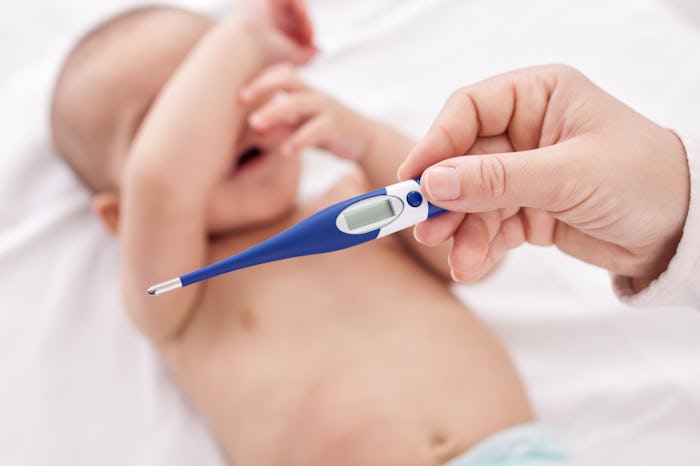Life

What To Know About RSV, Which Is Common In Children
Most children will likely come down with this virus before their second birthday.
Watching your kids get sick is one of the worst parts of parenthood. Seeing your little one suffer from even a mild cold is enough to drive most parents to distraction. You'd do anything to make your baby feel better at once. Unfortunately, many kids seem like sponges for illnesses, and you'd need a medical license to keep up with all of the things that can make them sick. For instance, what is RSV and what should parents know about this particular virus?
According to the Mayo Clinic, the RSV, or respiratory syncytial virus is a particularly common cause of infections for children under the age of 2. In fact, most children will likely come down with this virus before their second birthday. Thankfully, as further explained by the Mayo Clinic, most kids only experience mild symptoms with this sickness, similar to the common cold. Some coughing and a runny nose may be the extent of the damage. Chances are, your kiddo will be better with just a little R&R.
There are, however, cases in which RSV can cause more severe reactions. As noted on WebMD, children who were born premature, have heart or lung disease, or an otherwise weakened immune system, may be at risk for complications. In these cases, the simple RSV infection may lead to troubling ailments such as bronchiolitis or pneumonia, as further explained by WebMD.
So what's a concerned parent to do? By keeping an eye out for the more severe symptoms, you can help gauge whether this will be a mild or severe case of RSV. According to HealthyChildren.org, if your child has a high fever, difficulty breathing, a bluish skin tone, or nasal discharge that's green or yellow, then you may want to visit a pediatrician as soon as possible. This may be a sign that your kid's RSV infection has progressed to something more serious.
For most kids, however, RSV will not be a huge cause for concern. The virus will show up and pass like any common cold, leaving your kid none the worse for wear. In fact, you may not even know your kid has had an RSV infection by the time it has passed.